BOSTON — Reading commuters could get train service to North Station every 15 minutes if the MBTA followed the recommendations made in the “A Better Haverhill Line” report released today by TransitMatters. In addition to electrification and new high-level platforms, the line would need to be either double-tracked for $10 million or the station moved to the existing double-tracked segment between Ash Street and New Crossing Road for $20 million.
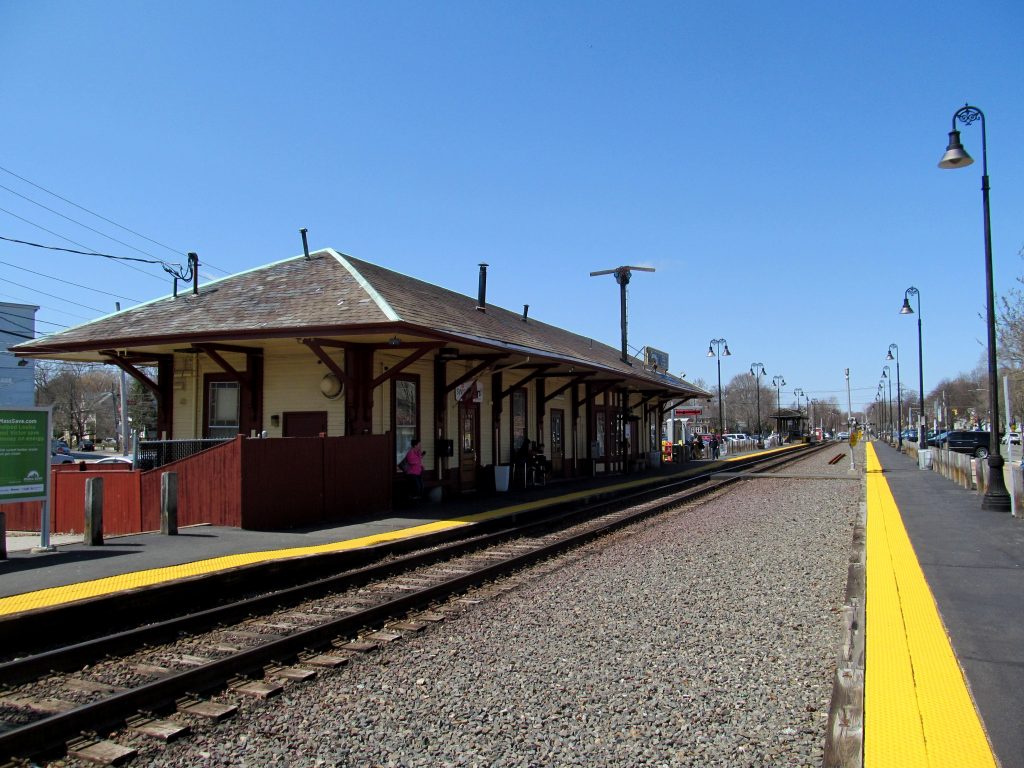
only has a single track. Moving the station slightly south
removes the need to build a second track, and helps avoid
several nearby grade crossings.
Under the plan, the Haverhill Line would be split into two in order to maximize utility. Trains to Lawrence and Haverhill would share the Lowell Line and use the Wildcat branch while Reading would be the terminus of a separate line.
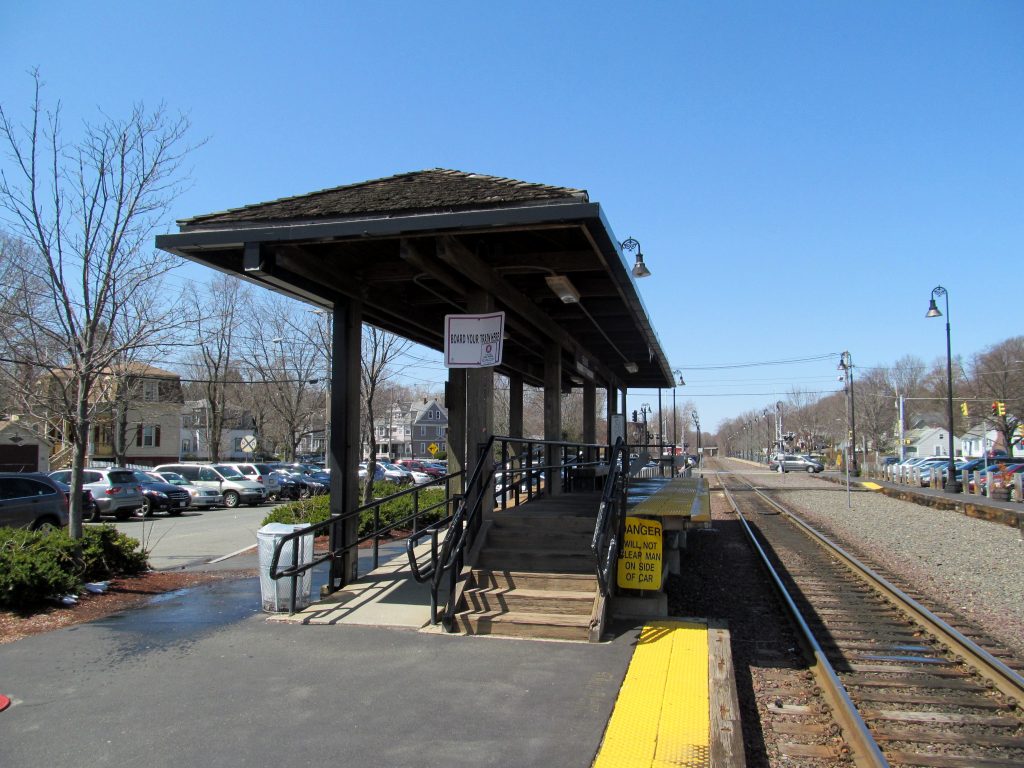
easier boarding experience than a low-level platform on
its own, but still reduces the rate at which people can board.
”Our vision for the Haverhill Line maximizes its ability to provide more service and attract higher ridership, which is essential for recovering from the pandemic,” said TransitMatters executive director Jarred Johnson. “It also keeps the MBTA’s options open for the future while adding high-level platforms ensures that riders of all abilities will be able to get on and off.”
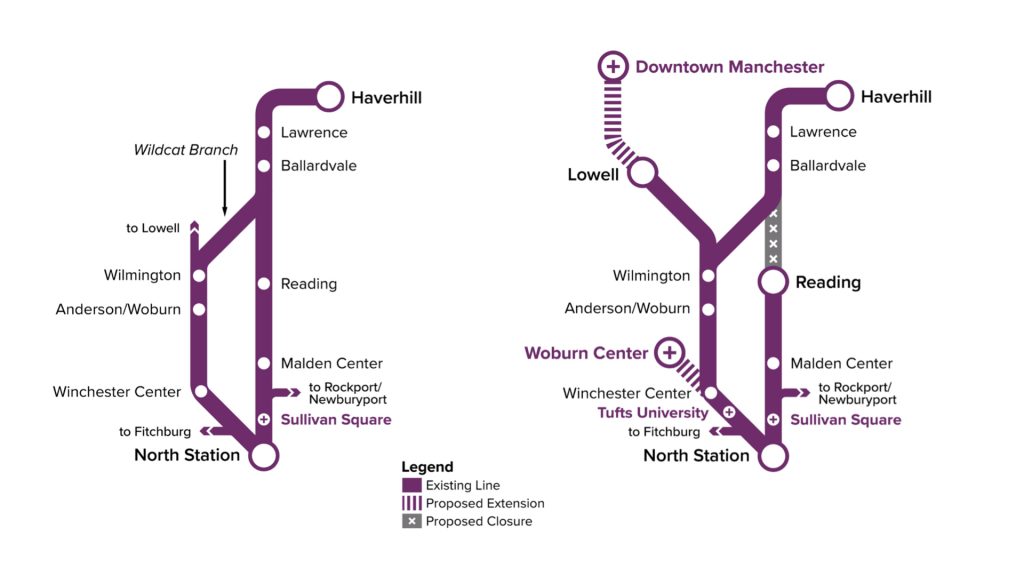
The stations along the Reading Line: Malden, Wyoming Hill, Melrose Cedar Park, Greenwood, Melrose Highlands, and Wakefield, each have nearly or over a thousand jobs within a half-mile but even the station with the highest ridership, Reading, gets fewer than 850 daily boardings. This suggests the line is not working for most riders. The lack of frequent service and slow speeds may account for this, which can be dramatically improved with electrification and electrical multiple-unit trains, which can accelerate faster and are more reliable. These improvements will permit trains running between North Station and Reading in 20 minutes every 15.
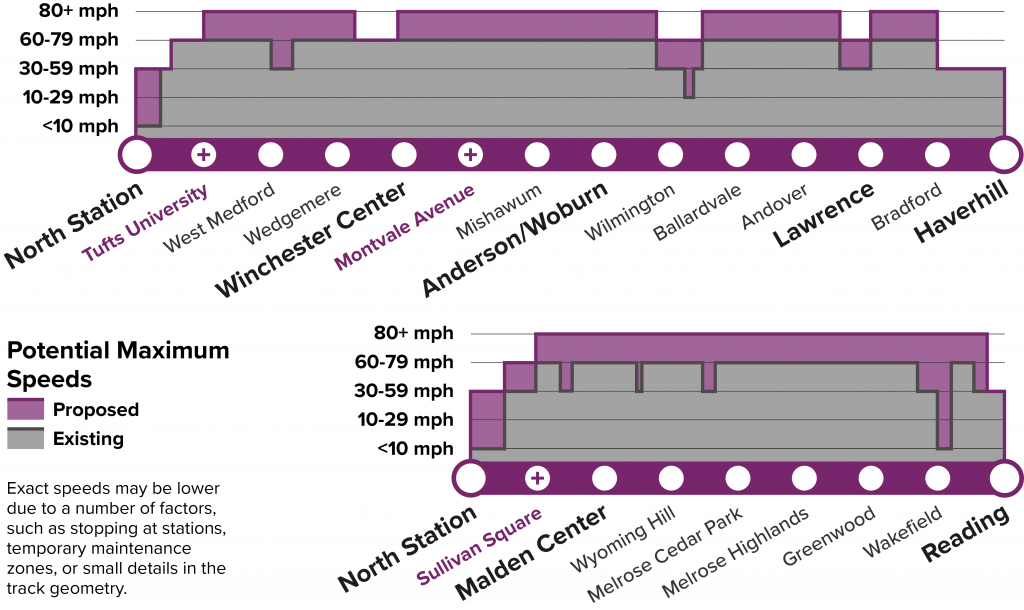
In addition to investments in electrification and electric multiple unit trains, all stations will need high-level platforms for accessibility and reducing time spent stopped at stations, while the amount of double-tracking will depend on what route the MBTA chooses. The Reading route will require either double-tracking at the Reading station and building two high-level platforms, or moving the station to a nearby double-tracked segment. Sullivan Square Station should also accommodate commuter rail service, providing access to Charlestown and Somerville.
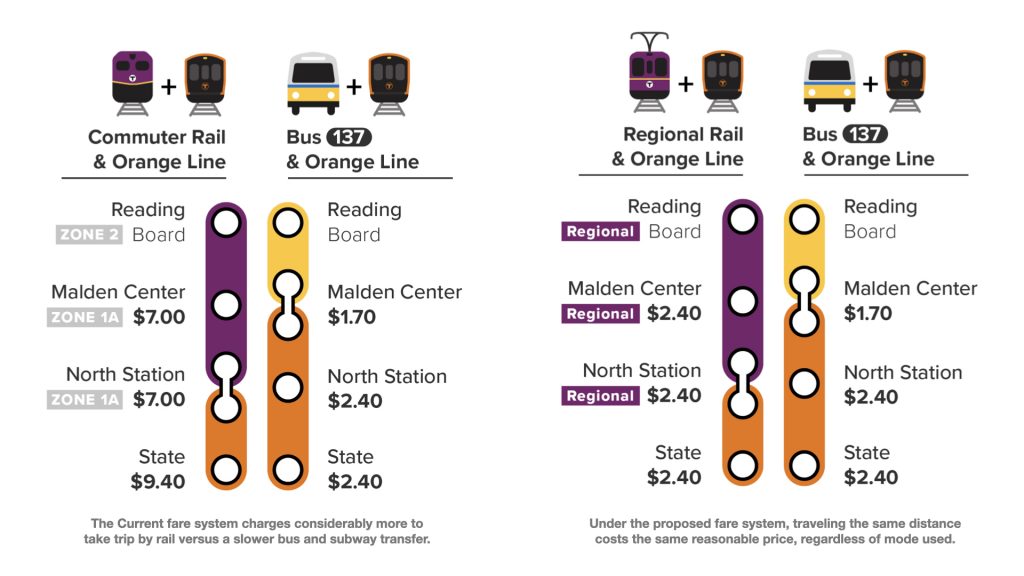
TransitMatters is dedicated to improving transit in and around Boston by offering new perspectives, uniting transit advocates, and informing the public. We utilize a high level of critical analysis to advocate for plans and policies that promote convenient, effective, and equitable transportation for everyone.
